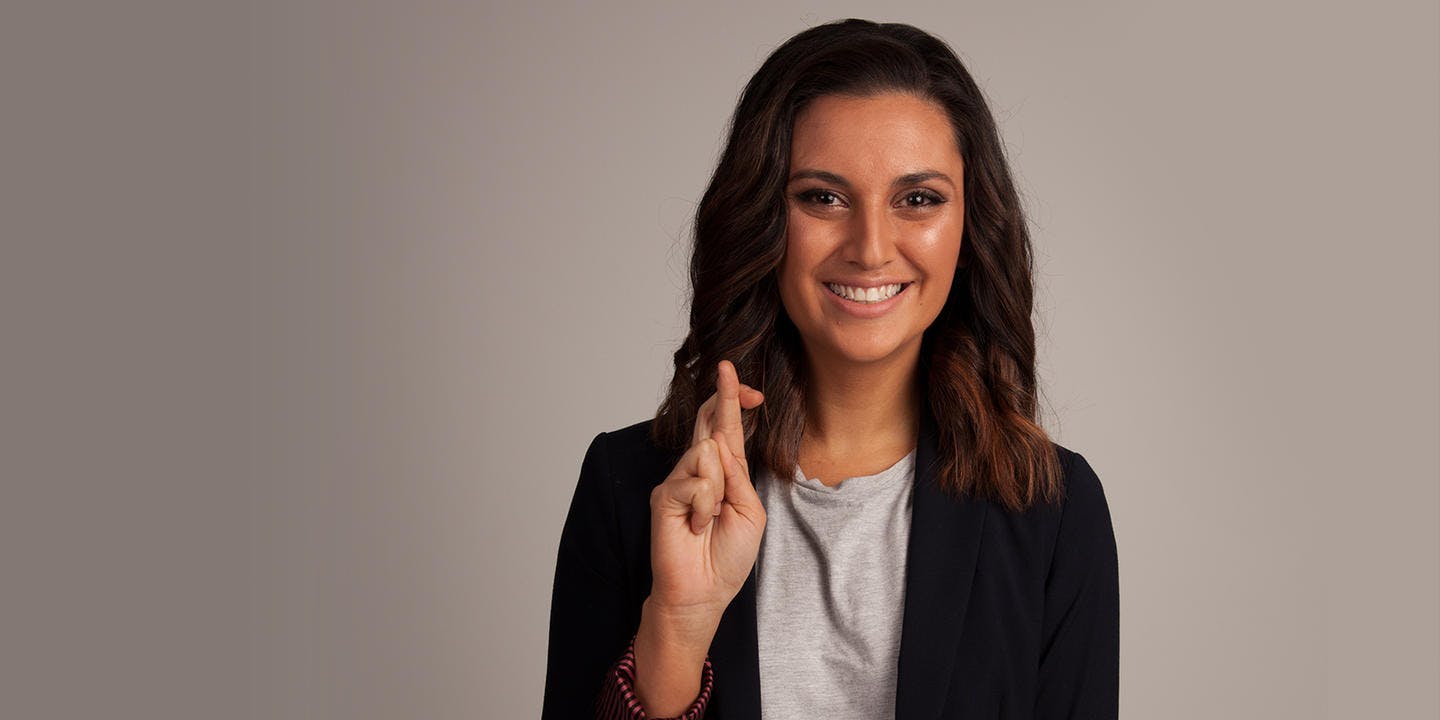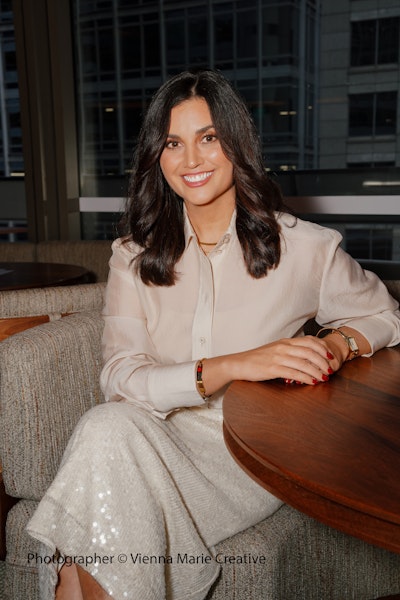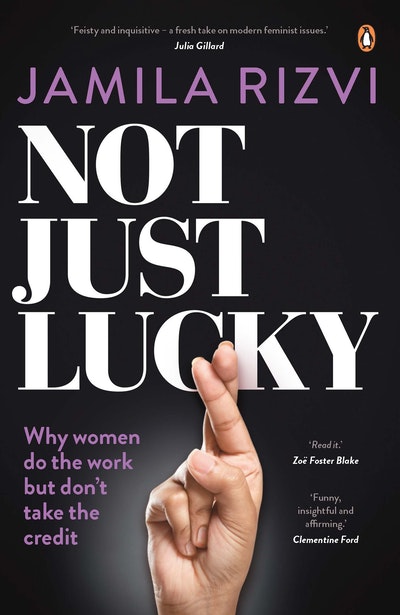Jamila Rizvi on why emotional intelligence is the new black.
In general terms, men and women behave differently at work. Why? Well, let’s just say it’s complicated… In Jamila Rizvi’s book Not Just Lucky she explores these differences and exposes the structural and cultural disadvantages that rob women of their confidence. From the behavioural to the biological, she investigates the reasons why Australian women are suffering from a crisis of confidence about work, and why, even when women succeed, they’re reluctant to take the credit. In the passage below Rizvi takes a look at why women are good at ‘feelings and stuff’.
Hiding emotions at work isn’t working for employees and it’s not working for employers, either. An employee is actually more valuable if they are emotionally intelligent and aware. Emotional intelligence is a term that gets thrown around a lot without much understanding of what it actually means. One of my (bloke) mates recently described it as ‘what chicks are good at – you know, feelings and stuff ’. I stepped on his toes. In basic terms, having emotional intelligence means you’re able to recognise and manage not only your own emotions but the emotions of others. It’s characterised by three main skills:
1. Emotional awareness
This means being self-aware, understanding what it is you are feeling and recognising emotional responses in others. For example, if you are feeling as though you want to cry, how good are you at recognising the cause of the tears? Is it anger, sadness, frustration or exhaustion?
2. Harnessing emotion
This means applying emotion to improve performance in a task, like problem-solving. If you are stressed about an impending deadline, can you use that to motivate yourself? If your team is excited about an upcoming project, are you able to translate that to increased productivity?
3. Managing emotion
This means managing both your own emotions and the emotions of others effectively. When a friend is upset, are you able to calm and comfort them? When you receive criticism from your boss, are you able to separate your emotional response from your functional response?
Academic consensus is that women tend to be better at emotional intelligence than men. At any one time, women are likely to have up to 30 per cent more neurons firing in the areas of the brain that control thinking and feeling. Remember these neural pathways are mostly developed postnatally and so are shaped, at least in part, by how we are raised. This is what makes women go over and over the same emotional challenge in their heads – sometimes to a point of anxiety. If you’ve ever rolled over in bed at night and explained to a gentleman partner what’s on your mind only to be met with a response of ‘Huh? But that was ages ago,’ you’ll know this to be true.
Researchers have found that ‘women are faster and more accurate at identifying emotions’ as well as picking up non-verbal cues. Men are more likely to exhibit unifocal thinking, which means they focus on the end result, whereas women generally have a more divergent thought processes. While the end goal remains in a woman’s consciousness, there is greater consideration of what risk might have been missed, or what’s not being seen clearly. What often gets called ‘women’s intuition’ may actually be a type of unconscious reasoning that is based on recognising emotional patterns. This is what helps us to assess when it’s appropriate to take risks and when greater self-care is required. Some scientists even believe it may be part of the reason women live longer than men. Men take more risks, which are less calculated. Women play it safe.
Some scientists think brain structure may even cause women to fixate more intensely on an event that has already happened. We consider carefully how things could have gone better, what we would have done differently and why a situation turned out the way it did. There is a small part of the brain called the cingulate gyrus, nicknamed the ‘worry wart’ by neurologists. It’s the part of the brain that humans use to weigh up our options and evaluate errors. It’s generally larger in women, which may make women better attuned to emotional responses because we have spent more time imagining possible variations. Put another way, women aren’t better at feelings than men. We just spend more time thinking about and processing them. We’ve had more practice.
- In basic terms . . . Friedman H, Martin L. The Longevity Project: Surprising Discoveries for Health and Long Life from the Landmark Eight-Decade Study. 2011. Plume.- At any one time, women . . . Amen, D, Trujillo, M, Keator, D, et al. ‘Gender differences in CBF in a healthy and psychiatric cohort of 46034 SPECT scans.’ Amen Clinics. 2013.- This is what makes women . . . Amen, D, Trujillo, M, Keator, D, et al. ‘Gender differences in CBF in a healthy and psychiatric cohort of 46034 SPECT scans.’ Amen Clinics. 2013.- Researchers have found . . . Amen, D, Trujillo, M, Keator, D, et al. ‘Gender differences in CBF in a healthy and psychiatric cohort of 46034 SPECT scans.’ Amen Clinics. 2013.- Some scientists even believe . . . Friedman H, Martin L. ‘The Longevity Project: Surprising Discoveries for Health and Long Life from the Landmark Eight-Decade Study.’ 2011. Plume.- Some scientists think brain . . . Pujol J1, López A, Deus J, Cardoner N, Vallejo J, Capdevila A, Paus T, ‘Anatomical variability of the anterior cingulate gyrus and basic dimensions of human personality’, Neuroimage (April 2002).- There is a small part . . . Pujol J1, López A, Deus J, Cardoner N, Vallejo J, Capdevila A, Paus T, ‘Anatomical variability of the anterior cingulate gyrus and basic dimensions of human personality’, Neuroimage (April 2002).














